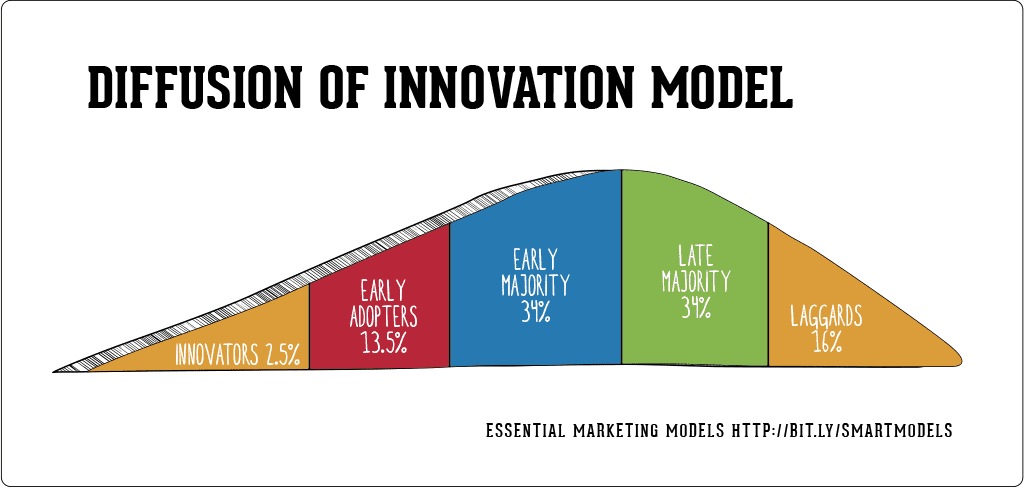 In regards to the telegraph, this theory explains why the telegraph was almost instantly embraced by our society. Rogers defines this theory and its two main components of diffusion and innovations. The diffusion refers to "the process by which an innovation is communicated over time among the participants in a social system." The innovation is the concept or invention that is being introduced to a society.
In regards to the telegraph, this theory explains why the telegraph was almost instantly embraced by our society. Rogers defines this theory and its two main components of diffusion and innovations. The diffusion refers to "the process by which an innovation is communicated over time among the participants in a social system." The innovation is the concept or invention that is being introduced to a society. Pretty much everyone who could afford it was an early adopter of the telegraph. I suppose this would be the one setback from this new invention, as I'm sure it was rather expensive to install when it was first invented. Besides this, there were really no downsides to having a telegraph system. Even though it took some time to put up telegraph poles, the usage that society would get from installing these new communication systems was too valuable to wait on. Poles were installed almost immediately and within a quarter century, there was a telegraph line installed that connected Europe to America.
The telegraph was really the first communication system that could send messages almost instantly. Before the telegraph, messages would have to be delivered by humans, but now with the use of electricity, one could send messages over great distances so quickly that one could even have a live conversation with another person thousands of miles away (assuming both parties were well versed in knowing how to operate a telegraph and how to decipher morse code.) I'd even argue that it was the first form of texting. There was no other invention before this (and maybe since) that so severely changed the way humans communicated.
Having instant communication like that was a commodity that was so valuable to our society because it made our lives easier in every way. With this type of communication, almost all tasks could be completely more quickly and efficiently, and could even be coordinated by multiple parties from two completely different locations. The telegraph made it so that distance wasn't an obstacle in human communication. Because it was such a milestone of an invention, it's no surprise that it was so quickly adopted by society, and the diffusion of innovations theory backs that up. Everyone became an early adopter because it made everything easier. It was almost a necessity to possess an instrument as powerful as this.
When looking back at it, it's crazy to think that such an advanced system like this became as popular as it was in such a short amount of time. The fact that it took less than 25 years to connect Europe to America telegraphically is something that I think most people can't even wrap their head around. But thanks to the diffusion of innovations theory, it actually makes perfect sense. The demand and desire for the product was so high, that we were able to accomplish a feat as great as this in such a short span of time. Within just a few decades, telegraph lines were layed out all over the world. Cities everywhere were connected with each other.
The telegraph really took our species to another level. After its invention, our society saw exponential change and improvement in almost all aspects. This lead to so many new ideas and inventions being created, that within 100 years, our society looked completely different with the expansion of big cities and the incalculable amount of new inventions that spawned soon after the telegraph. I just hope that the next time we do discover something as impactful and powerful as the telegraph, we as a people will be just as quickly to embrace it. Though because of the diffusion of innovations theory, I don't think we're gonna have a problem with that.




No comments:
Post a Comment